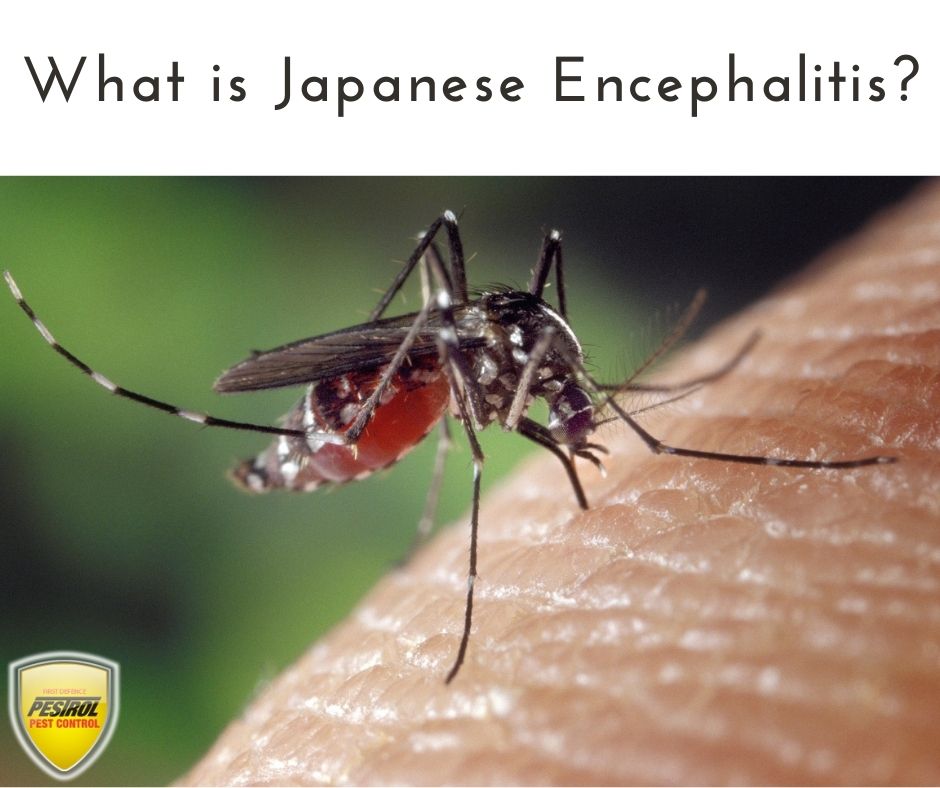What is Japanese Encephalitis?
After the past 2 years of trying to restrict the effects of the COVID-19 pandemic, the Australian Government has another disease to prevent on its hands. That is the Japanese Encephalitis Virus (JEV) spreading in the Eastern parts of Australia. As of now, the virus has been detected in pigs in NSW, Victoria, Queensland and SA and there are a few hospitalisations with suspected cases in Queensland, NSW and Victoria.
The Vaccine for JEV reduces symptoms and is administered in many parts of Asia as well as the Torres Strait. However, the extreme weather conditions we’re facing currently due to the effects of La Niña are the suspected reason for the virus to have travelled so far south into Australia. Have a look at this article to learn more about La Niña.
Mostly found in pigs, horses and water birds, the reason for the virus to have spread further south into Australia is the increase in the population of migratory birds as there is more availability of water because of flooding.
The rising problem of global warming has increased water levels in the world, increased rainfall and in turn, increased mosquito breeding.
So, what is Japanese Encephalitis?
JEV spreads through mosquitoes that carry the virus from pigs, horses and birds to humans. It takes anywhere between 5-15 days for symptoms to show up if they show up at all. Almost all humans that contract this virus are asymptomatic however, it can cause major and permanent damage to the nervous system in less than 1% of the population. Especially in children, this virus is known to cause tremors, seizures, coma, paralysis and even death.
Initially detected in pigs, there are now a few confirmed cases within the human population in Australia. A mosquito-borne disease, the Japanese Encephalitis Virus (JEV) is making its way further south into the country as the mozzie population is on the rise. Rain and floods are also making it harder to help people as lesser personnel is deployed on ground.
This virus is only communicated from one host body to another via mosquitoes and is not a concern of food safety, I.e., you can still eat pork without the fear of contracting JEV and you cannot give it to or get it from another human being.
What are the symptoms of JEV?
If you do happen to contract this virus, look out for symptoms like:
-
A stiff neck
-
Fever
-
Severe headaches
-
Difficulty in movement
-
Nausea
-
Sensitivity to light or sound
These symptoms may indicate that inflammation of the brain which is what encephalitis is. If these symptoms are present and you live in Eastern Australia, the hospital will need to check for JEV and you are advised to seek professional medical advice.
Is JEV dangerous?
About 99% of people that contract JEV do not experience symptoms. And the ones that do have only reported mild symptoms that resemble those of a cold. Only less than 1% of humans that contract this virus are symptomatic, out of these, a very small amount can have major effects of the disease on their mental and physical health. It kills approximately 15,000 of its 68,000 victims around the globe each year.
The elderly and children are at a higher risk of contracting serious symptoms however, a majority of the adult population will not show symptoms. Having said that, with quite a significant number of cases, and rising, Government officials have deemed this “communicable disease incident of national significance”.
Of all the diagnosis of Japanese Encephalitis, 25-30% of cases end in fatality and 30-50% of people that survive the disease are reported to have permanent issues with their central nervous system that may result in problems with movement, senses and cognition. All elderly people, children under the age of 5 and people with compromised immune systems are specially susceptible to serious side effects.
The government is pushing for prevention by way of preventing mosquito bites as there are no treatments for Japanese encephalitis currently.
How do we get rid of it?
Deterring or repelling mosquitoes is the only way to eradicate this disease. Even though that cannot be 100% prevented, options for disease control include:
-
The use of repellents, traps and zappers: Even though, much of the communication out there advises the use of topical repellents with DEET, we recommend using a repellent without DEET in it as many studies claim for it to be a Neurotoxin. We have some great naturally derived products by Good Riddance and Mosi-Guard that are kinder to your body.
-
Long and loose-fitting clothing: Recommended by health officials when going outdoors. One amazing brand for this is Insect Shield that make insect repellent clothing and headgear. It is also important to ensure that there is no stagnant water sources around you for the mosquitoes to breed in.
-
Dump out any standing water near your home
-
Stay indoors during dusk and dawn
For Animals, Cattle and Pets:
Even though donkeys and horses can be affected by the disease, they have not been reported to develop high levels in their blood stream and thus, cannot infect mosquitoes, taking them out of the spread equation. However, it can still affect the animals themselves and a way to repel mosquitoes off these animals such as the Troy Repel-X Insecticidal and Repellent Spray 500ml would be ideal. Be sure to not spray it close to their eyes.
People that work with pigs in rural Australia are particularly at risk as the disease can be hosted by pigs and transmitted through mosquito bites. It is recommended to place some form of mosquito deterrent or repellent around pig pens like the Pestrol Mosquito Control Trap. Anyone that spends time around pigs is urged to keep an eye out for and report any signs of the disease such as piglets that are weak, stillborn or have impaired nervous systems.
As dozens of suspected cases are being investigated around the country, the Department of Health and Department of Agriculture, Water and the Environment are closely collaborating with state/territory authorities to implement a national health policy, deploy additional personnel and resources to affected areas of the country, public messaging and an intervention in hopes to eradicate the virus before it gets to the endemic stage in Australia. They are also working to figure out how the virus is circulating.
This collaboration of the federal and state/territory departments will ensure that the response to this virus is fast and well-coordinated. Officials have been reported to say that control measures, surveillance for mosquitoes and a vaccine roll-out are already under way. They urge individuals to consider bio-security a personal responsibility and protect their animals and themselves.
Even with these measures in place, health authorities suspect an increase in the number of cases in the near future.
What about a Vaccine?
There are currently 2 vaccines for JEV that are administered to humans in Australia, one for adults and one for children aged 9 months and over. These vaccines are usually only advised to individuals travelling to the Torres Strait, parts of Asia or people who work with certain animals. However, with the increase in infections right now, all vaccines have been deployed to areas considered high-risk. This vaccine roll-out is not as wide scale as the one for COVID-19.
More vaccines are on their way but prevention is better than cure and simple steps can be taken by you to protect yourself. There are no registered JEV vaccines for animals in Australia.
A recent statement issued by the Hon David Littleproud MP, Minister for Agriculture and Northern Australia; and the Hon Greg Hunt MP, Minister for Health and Aged Care urges locals to report any suspicions of the disease in animals to the National Emergency Animal Disease Watch Hot-line on 1800 675 888.
Below is the Official Australian Department of Health Source that has been referred to in this article and that you can access for further and accurate information.
Information on combatting the Japanese Encephalitis Virus by the Australian Department of Health
Want to learn more about how to prevent mosquitoes around your home? Read on:
Sources:
https://minister.awe.gov.au/littleproud/media-releases/japanese-encephalitis-virus
https://www.dailymail.co.uk/news/article-10587315/Japanese-encephalitis-virus-rise-Australia.html
https://www.sciencedaily.com/releases/2009/08/090804193230.htm




